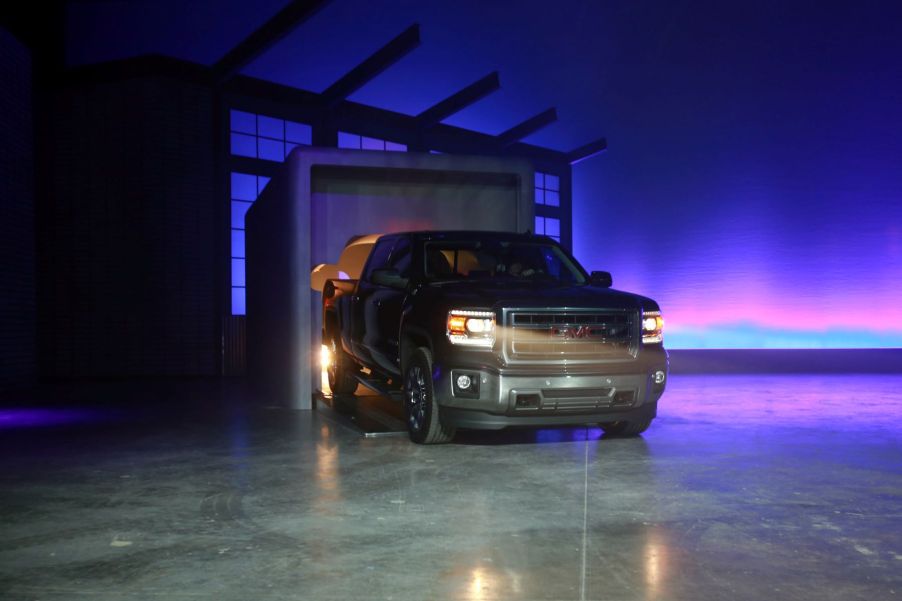
5 Car Brands Less Reliable Than Kia
Unsurprisingly, every time vehicle reliability is rated, Japanese brands like Toyota, Lexus, Mazda, and Honda are at the top of the pack. However, South Korea’s own Kia is the most recent purveyor of the pinnacle of dependability. It wasn’t long ago that the mass-market brand was the laughingstock of the automotive industry. Now, these five car brands are deemed less reliable than Kia.
1. Chevrolet

In the J.D. Power 2022 Vehicle Dependability Study (VDS), Chevrolet didn’t fare too well. With a brand-wide rating of 171 Problems per 100 vehicles (PP100), it was two dozen points more than Kia, which isn’t a good thing.
The Manual reports that three models significantly damage the brand’s reliability ratings. These include the Chevy Silverado 1500 and two EVs, i.e., the Chevy Bolt and Chevy Bolt EUV. The Silverado 1500 has a long history of unreliability, so it isn’t surprising. There’s already a recall for the recently released 2023 model due to faulty daylight-running headlights.
As for the Chevy Bolt, it’s been plagued with engine and electric system issues for the past few years. Unfortunately, it’s something the Chevy Bolt EUV seems to have inherited.
2. GMC

GMC is even worse, with none of its models offering above-average reliability. The closest it comes to average is with the GMC Terrain, which seesaws between reliable and unreliable from year to year. For GMC, 2022 was one of its worse years in recent memory with transmission and in-car electronics issue, CarComplaints indicates.
On the other hand, the GMC Sierra 1500 truck is way worse, with a history of unreliability that spans the last two generations. While it did improve somewhat with the introduction of the fifth generation, it’s still unreliable enough that buyers have to worry about trips to the auto shop and recalls. Across the brand, GMC was rated with a 192 PP100 in the 2022 VDS, which is the same as the industry average.
3. Volkswagen
Like GMC, Volkswagen doesn’t have any of its popular models with above-average reliability, including the recently launched electric Volkswagen ID.4. That said, the worst offender has to be the relatively new Volkswagen Taos, with lower than average reliability ratings for the segment, Edmunds explains.
In 2022, the Taos had issues with the drive, fuel, and electric systems, engine, transmission, body integrity, and even in-car electronics. As such, it would make sense why the next model year is expected to be unreliable. The issues earn Volkswagen as a brand a 217 PP100.
4. Jeep
For Jeep lovers, there’s at least one model to be optimistic about, i.e., the Jeep Cherokee. There’s a significant drop-off in reliability between it and other models.
The Jeep Gladiator is near the bottom of the dependability list, with suspension, body integrity, and drive system issues being recurrent for the past few years. Jeep’s revered Wrangler isn’t on the reliability high side either. Subsequently, the problems bring Jeep’s brand reliability standard down with a 201 PP100.
5. Mercedes-Benz
The luxury brand Mercedes-Benz falls below the industry average, but just barely. The German manfactuer was given a 195 PP100 in J.D. Power’s 2022 VDS.
Some of the recurring trouble spots for the GLE have been the body hardware, in-car electronics, power equipment, climate system, and electric system. Though most owners are satisfied with the vehicle, the E-class isn’t much better.
How reliable is Kia?

Kia ranks highest overall in vehicle dependability, with a score of 145 PP100 in the VDS. It’s the first year Kia leads the overall ranking after ranking third overall the year prior.
Kia vehicles are often regarded as reliable now for a number of reasons. For example, Kia cars and SUVs often come equipped with advanced safety features that contribute to their reliability. Continual advancement have ranked the brand higher and higher every year, proving the company is constantly innovating. Moreover, Kia offers one of the best warranties in the business, which is a testament to their confidence in the reliability of their vehicles in a 10-year or 100,000-mile warranty for powertrain components.


